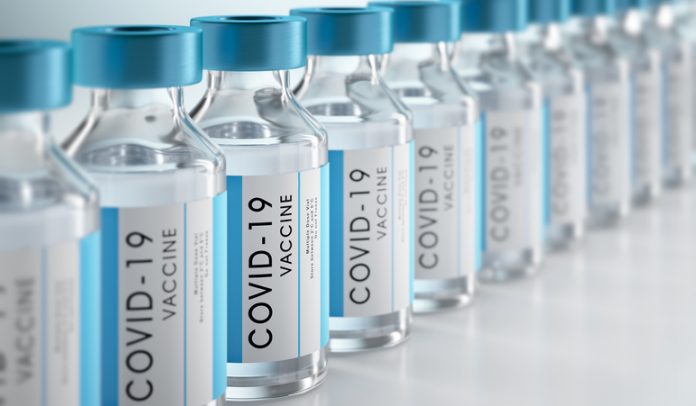Reports that some people have died within days of receiving their COVID-19 vaccines are raising questions about the safety of vaccines and creating obstacles for voluntary compliance.
The remarkable speed with which COVID-19 vaccines were developed and approved gave rise to hopes that the coronavirus could finally be brought under control, but there have been scattered reports of post-vaccination deaths in the United States and abroad.
The U.S. government’s nationwide database, the Vaccine Adverse Event Reporting System (VAERS) states as of February 4, there were 653 deaths and 12,697 adverse events reported after individuals received the Pfizer/BioNTech or Moderna vaccine. Bloomberg Covid-19 Tracker reported 56.1 million vaccines were distributed in the U.S. as of February 16.
Deaths Making Headlines
Former Atlanta Braves slugger Hank Aaron received his Moderna shot on January 5 at a highly publicized event at Morehouse School of Medicine, only to die quietly in his sleep just over two weeks later. Aaron, who was 86 and suffering from arthritis, showed up for the Atlanta vaccination in a wheelchair. The event, at which former UN Ambassador Andrew Young, 88, was also given a shot, was staged to encourage older black men to take the vaccine.
A cause of death was not given, but Georgia’s top public health official said Aaron’s passing was not related to the vaccine, the Atlanta Journal-Constitution reported. Unnamed sources quoted by USA Today and several other news outlets said Aaron died of a massive stroke.
COVID-19 can cause two types of stroke: Hemorrhagic stroke and Thrombocytopenia.
Another report involved the deaths of 23 elderly people in nursing homes in Norway who suffered from severe illnesses after being vaccinated. The World Health Organization (WHO) undertook a review and found no evidence the deaths were related to the Pfizer-BioNTech SE vaccine.
In Portugal, an official with the Portuguese Institute of Oncology died within two days of being vaccinated against COVID-19. But an autopsy concluded that the woman’s death on January 1 was not related to the vaccine.
Similarly, A 64-year-old man in Placer County, Calif., who had tested positive for COVID-19 in late December, died on January 22 within hours of taking a vaccine. According to an eye-witness account, the man, a county health care worker, appeared to be suffering from an allergic reaction, including stiffening of the legs, and was put in an ICU where he died. After an autopsy, the COVID-19 vaccine was “ruled out as a contributing factor” in the death of the man, the Placer County Sheriff’s Office said, according to kcra.com (Jan. 31).
CDC: Vaccines Pose Little Risk
Six weeks into the nationwide vaccination campaign, with over 26 million people having received either the Pfizer or Moderna shots, a panel advising the U.S. Centers for Disease Control and Prevention (CDC) concluded in late January that the vaccines posed little risk.
After reviewing data on the side-effects of the vaccines, the CDC panel reported that the most common symptoms after vaccination were pain, fatigue, headache, and muscle soreness. Most complaints came after the second shot had been administered. The panel said the deaths were unrelated to the vaccine.
By early February several cases of severe allergic reactions – called anaphylaxis — had been reported to a nationwide database, the CDC said. There were 50 such reactions to Pfizer’s vaccine and 21 to Moderna’s. Web MD reported that 94 percent of anaphylaxis cases after Pfizer’s vaccine and 100 percent after Moderna’s occurred in women, though it’s not clear why. By January 29, VAERS states there were a total of 739 serious adverse events reported for the Moderna Vaccine and 1,048 with the vaccine manufactured by Pfizer/BioNTech.
The reports coincide with a less than enthusiastic response to the vaccines from the general public. In a January Kaiser Family Foundation poll, 20 percent of U.S. adults indicated they would refuse the vaccine or only get one if required. Thirty-one percent of respondents said they want to wait and see how the vaccine is working. The poll questioned 1,563 adults and has a margin of error of plus or minus 3 percentage points.
The Jury Still Out
Adverse events and deaths are likely underreported, says Jane Orient, M.D., the executive director of the Association of American Physicians and Surgeons, and policy advisor to The Heartland Institute, which co-publishes Health Care News.
“Perhaps, they are all mere coincidences,” Orient said. “But how did authorities conclude that they were NOT vaccine-related? What did the autopsies show? A pre-existing condition or one caused by the vaccine? If you die after testing positive for COVID, you are a COVID death? Is there a double standard?”
Vaccines have a unique effect on the body, says Erwin Haas, M.D., an infectious disease specialist and policy advisor to The Heartland Institute.
“Vaccines are not like medications that you can stop if complications arise; the antigen is injected and hopefully cleared out over weeks or months by the immune system, which, in turn, alters – sometimes adversely,” Haas said. “The two major COVID-19 vaccines now offered in the U.S. go a step further – they insert RNA into the body’s cells, forcing them to produce the antigen, a technology developed in Germany and designed to induce immunity to cancer. That technology has not been extensively tested.”
Until more is known, Haas says he will remain under advisement.
“I’m letting others rush into this new adventure,” Haas said. “If [the vaccines] work, they will provide herd immunity. If not, then at least I hope that [those who get the vaccines] continue to feel well.”
Bonner R. Cohen, Ph.D., (bcohen@nationalcenter.org) is a senior fellow at the National Center for Public Policy Research.




















